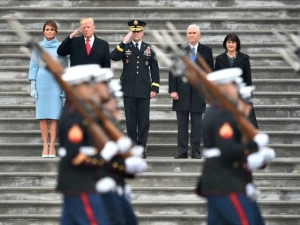Among the Grassy Knoll Left, the CIA has always been the prime suspect in the JFK assassination. In their scenario, the Agency had good reason to kill the president as his supposed attempts to end the Cold War threatened the justification for their existence and the source of their sinister power. With the president who
MoreA retired CIA agent was once asked what he would say to Kim Philby, an MI5 agent who spied for Joseph Stalin, if he encountered the defector in Moscow. Rather than angrily confront Philby, the American stated he would ask with considerable satisfaction, “How do you like Moscow now, Kim?” If for once Philby was
MoreIt is said, cold-bloodedly, that JFK died in the most romantic and, based on what was to come for the remainder of the 1960s, fortunate way possible. For his death bathed his image in golden lights that did not cling to him while he lived, and allowed him to miss the consequences of many of
MoreTo this day, anti-anti-communists from the Cold War period and their tenured academic counterparts scoff at the idea that Soviet communists liquidated their American agents on US soil. While grudgingly admitting that Stalin did carry out wet work against those who dared to oppose him (I’ve heard professors actually defend it), they argue that such
MoreI recently had the opportunity to watch The Untold History of the United States by Oliver Stone and, as I’m sure was intended, it was a thought-provoking experience. It is for many reasons a masterpiece of documentary filmmaking. The research behind it left no stone unturned and the archival footage included in the ten-part series
MoreThe concept of Presidential Doctrine dates back to when James Monroe adopted a posture of anti-European colonialism in the western hemisphere. Since that time many presidents have come and gone without leaving a signature stamp on the attitude and behavior of our nation vis a vis foreign policy though many have at most sought to
MoreOne of the most insightful observations made by Sun Tzu in his seminal masterwork, The Art of War, is the following: “When you surround an army, leave an outlet free. Do not press a desperate foe too hard.” Tu Mu was more specific in his elaboration on the point; the ancient Chinese poet said the
More






